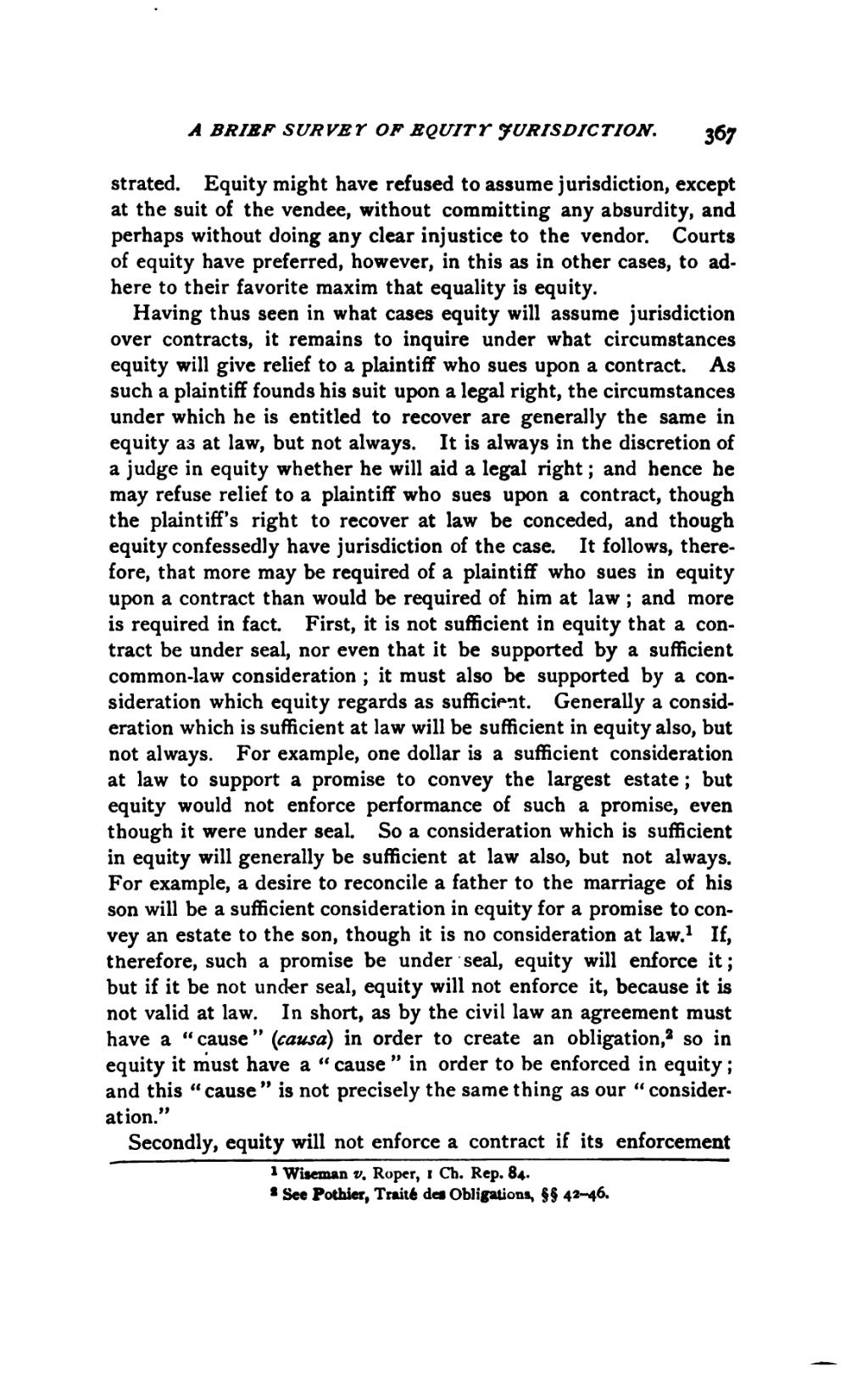strated. Equity might have refused to assume jurisdiction, except at the suit of the vendee, without committing any absurdity, and perhaps without doing any clear injustice to the vendor. Courts of equity have preferred, however, in this as in other cases, to adhere to their favorite maxim that equality is equity.
Having thus seen in what cases equity will assume jurisdiction over contracts, it remains to inquire under what circumstances equity will give relief to a plaintiff who sues upon a contract. As such a plaintiff founds his suit upon a legal right, the circumstances under which he is entitled to recover are generally the same in equity as at law, but not always. It is always in the discretion of a judge in equity whether he will aid a legal right; and hence he may refuse relief to a plaintiff who sues upon a contract, though the plaintiff’s right to recover at law be conceded, and though equity confessedly have jurisdiction of the case. It follows, therefore, that more may be required of a plaintiff who sues in equity upon a contract than would be required of him at law; and more is required in fact. First, it is not sufficient in equity that a contract be under seal, nor even that it be supported by a sufficient common-law consideration; it must also be supported by a consideration which equity regards as sufficient. Generally a consideration which is sufficient at law will be sufficient in equity also, but not always. For example, one dollar is a sufficient consideration at law to support a promise to convey the largest estate; but equity would not enforce performance of such a promise, even though it were under seal. So a consideration which is sufficient in equity will generally be sufficient at law also, but not always. For example, a desire to reconcile a father to the marriage of his son will be a sufficient consideration in equity for a promise to convey an estate to the son, though it is no consideration at law.[1] If, therefore, such a promise be under seal, equity will enforce it; but if it be not under seal, equity will not enforce it, because it is not valid at law. In short, as by the civil law an agreement must have a “cause” (causa) in order to create an obligation,[2] so in equity it must have a “cause” in order to be enforced in equity; and this “cause” is not precisely the same thing as our “consideration.”
Secondly, equity will not enforce a contract if its enforcement
